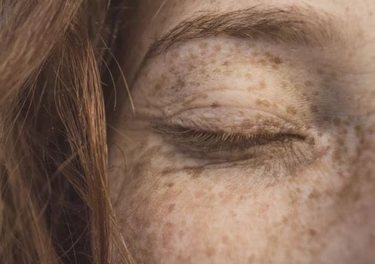The Chemistry Behind Good Skin

Remember those days of chemistry classes when you would sit staring at your textbook and wondering how this information would ever benefit you in real adult life? Yep, me too! It's taken me over a decade to finally need to use it but it's going to be worth it.
Your AM/PM routine is scripted, SPF is like an extra limb and you've considered growing an avocado tree to save on the weekly shop but despite doing everything your skin specialist tells you to, your skin continues to let you down.The answer may well have been hiding in that high school bible all along! Remember the pH scale? You know the one, the colourful rainbow bar that lit up the black and white pages of the otherwise dull textbook. Well what if I told you it actually plays a vital role in caring for your skin.pH is the scale that measures the acidity and alkaline levels of aqueous solutions. Here's how the numbers work: the lower the number the more acidic the solution, the higher the number the more alkaline the solution. Ranging from pH 1-14, neutral is 7, 1 is highly acidic and 14 is highly alkaline.Skin sits somewhere on the pH scale at around 5.5, meaning it's naturally slightly more acidic. However, skin being skin and it's temperamental self, this can change. Products, environmental triggers as well as some skin conditions, can disrupt skin's pH. In clinic, we also have the ability to change your skins pH level using chemical peels (yes, that's why we wear white coats, because we double up as scientists too!)How do pH levels affect my skin?
A good healthy, plump and perfectly oiled (but not too oily) skin would sit at a clear cut 5.5. Unfortunately, most of us don't fit these criteria. If a skin becomes too alkaline it is much more susceptible to fine lines, wrinkles and crows feet. On the opposite end, although it's much less common, an acidic skin will be very red, inflamed and sensitive to touch. Both ends of the spectrum can result in nasty breakouts and bad bacteria.So how can you identify your pH? Without getting too technical, stand in front of a mirror and look for these signs:Too Acidic- Oily and unclean even after cleansing
- Greasy or shiny appearance throughout the day
- Sensitive to products, touch and environmental changes
- Tight and dry after cleansing
- Fine lines and wrinkles especially on a morning
- Skin has a matte texture and doesn't appear dewy or glowing
- Rough patches are common
What is changing the pH level of my skin?
Before you go attempting to neutralise your skin with every home remedy listed on Pinterest or Google, stop! Take a look at the skincare products you already have.Using the wrong cleanser is a sure fire way to mess up your skin first thing in the morning, even if you are doing everything else right. Surfactants used in cleansers to clean the skin are usually the culprit behind that dodgy pH reading. Soap for example is highly alkaline, coming in at around 10-11 on the pH scale. After using it just once, it can cause the skin to feel dry and may take up to 16 hours for the skin to regain some of the lost lubrication, by which time the wash cycle has been repeated.On the opposite end of the scale is an ingredient like glycolic acid, which may be too acidic and can disrupt the lipid barrier and impair skin's natural defences.
Products such as mists, toners and sprays contain pH balancing formulations. Look for a mist or toner from a good clinical brand to help get your skin back to that middle safe zone.It's important to be aware and monitor changes in your skin. As each birthday passes, skin will vary slightly in texture and type. What was once an oily and congested skin in need of a de-shine, may now find some cleansers too stripping.Confused? Always speak to your skin specialist if you are concerned about your skincare or if you want to try something new. In a growing market, good skincare products aren't hard to come by, but selecting the right one for your skin is a whole other ball game.
For more information or to book your free consultation please call our clinic reception on 0113 282 3300.
Written for you by: Emily, Face the Future
Image source: unsplash.com























































